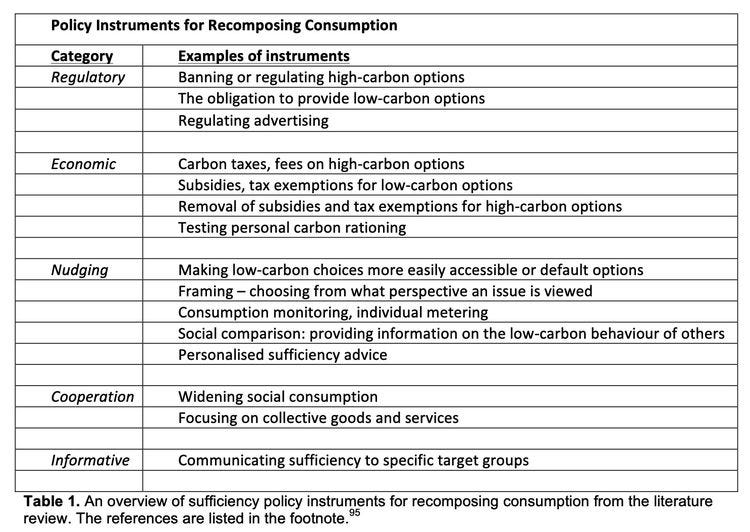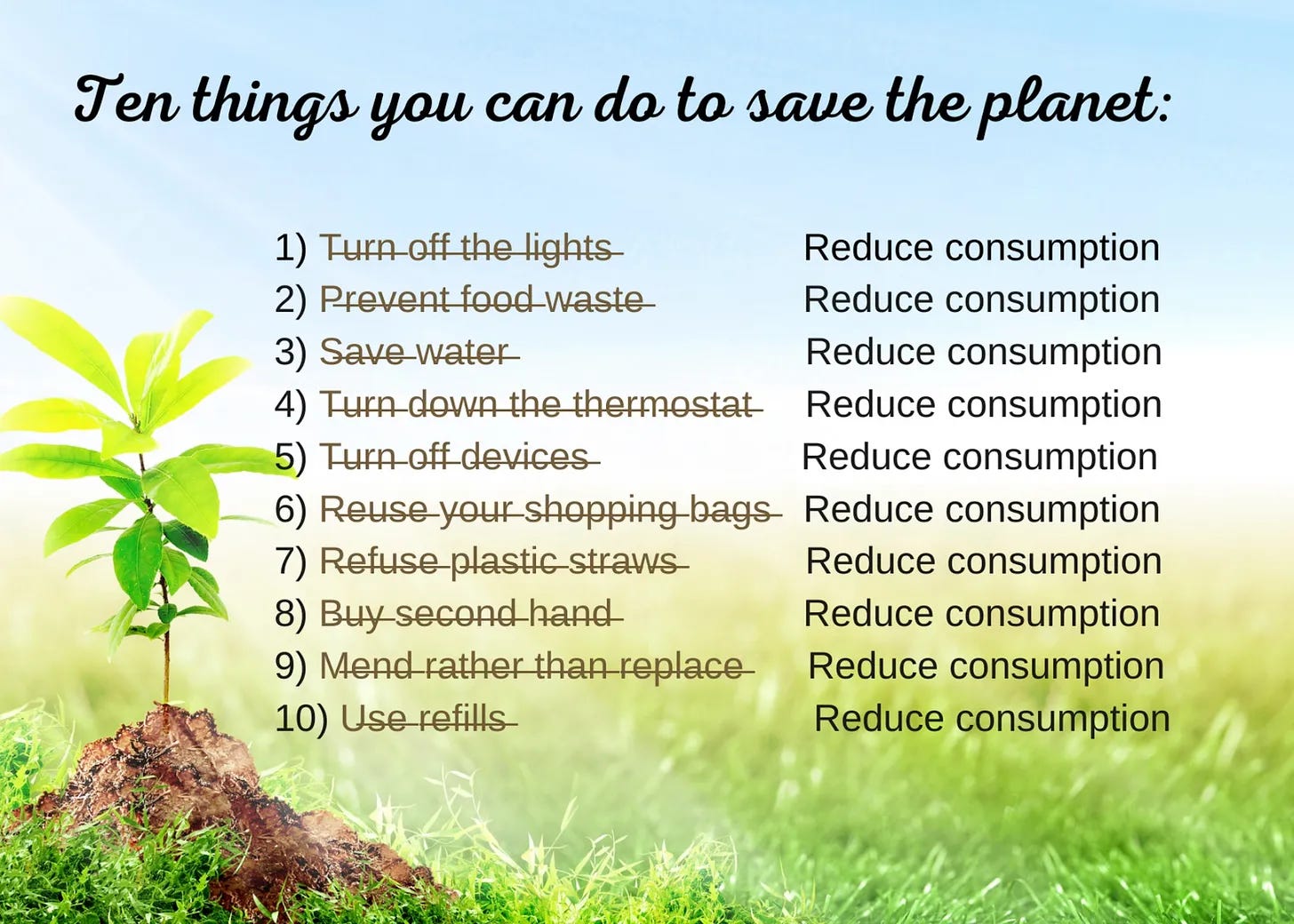Has anything really changed because of the climate crisis?
I try to find signs of positive change for a Canadian radio show.
Cross-Country Checkup is a national call-in show that I have spent my life avoiding. They describe it as “a place for raw, honest perspectives on the most pressing issues of the week. For over 55 years, it's where Canadians gather to listen to each other every Sunday afternoon.” It used to be hosted by a notorious crank, and it attracted cranky callers. Its tone has moderated considerably with Ian Hanomansing as the host. Still, I was nervous when they asked me to be on it, with the producer emailing, “We're hoping to do a show about how people's consumer choices have changed because of the climate crisis.” I was sure this would attract the cranks and the deniers.
Even the title made me a bit nervous, with the words “extreme weather” instead of “climate change.” Was this to avoid baiting the trolls?
The most surprising thing about the show was the consensus among the guests and the people phoning in that our personal consumption and the choices we make matter. Buying less stuff, eating seasonally, making things last longer, driving less, everything I talked about in my book, Living the 1.5 Degree Lifestyle, was on the table. Even activist Tseporah Berman focused on the demand side when I was sure she would attack the supply side, the corporations selling us stuff.
I spent some time preparing for the show and dug up data demonstrating positive change in the categories I discussed in my book: housing, mobility, food, leisure, stuff. I didn’t get to use any of it on the air, so I am turning it into a post.
There are many reasons that people reduce their consumption, as shown in a Finnish study, "The Sufficiency Perspective in Climate Policy: How to Recompose Consumption." Some changes come from above and are regulatory; we have recently seen changes in zoning in Vancouver and Toronto to encourage smaller residential units in what were formerly single-family zones, and the elimination of parking requirements. Some are economic, such as carbon taxes or subsidies for heat pumps. Some are nudging, like building good bike infrastructure to encourage people to bike instead of drive. The Finns don’t mention scaring the shit out of everyone with floods, fires and heat waves that have brought climate change home for many people.
Transportation
Change is happening; there has been a massive uptake in the use of e-bikes. Bloomberg NEF says, “Their sheer popularity is already cutting demand for oil by a million barrels of oil a day—about 1 percent of the world’s total oil demand.” Cycling rates have stayed high post-shutdown, but according to Diana Lind of The New Urban Order, walking rates are down 20%.
Fashion
Secondhand clothing is all the rage, growing three times faster than the clothing market overall and up 24% in 2022. Quartz says, “The top-cited reason to buy secondhand, across all generations, is to save money, with the fastest adopters being Gen Z, who say they also are buying to be more sustainable.” This is taking a serious bite out of fast fashion.
Food
Canadians are eating a lot less red meat and a lot more chicken than they used to, though not much less meat overall. Other sources indicate that veganism is booming.
“In 2018, the portion of vegetarians in Canada was 6.9% and in 2020 it had increased by 10.1% to 7,6%, which is 2,888,000 people. The number of vegans increased in the two years between the studies by an incredible 84%. The portion of vegans of the Canadian population was 2.5% in 2018 compared to 4.6% in 2020.This means that in 2020, around 1,768,000 Canadians were vegan.”
Leisure
In our leisure time, many have switched to lower-carbon activities. Cross-country skiing boomed in the pandemic because people wanted to avoid the choke points of the lodge, lift lines and buses, but the numbers have stayed high. (I traded in my snowboard for cross-country skis to reduce my carbon footprint and am loving it.)
Knitting and crocheting and all things DIY are booming; I see it in my own home where my daughter makes her own clothes and is taking up knitting now. My other daughter is taking up smithing!
Whether it’s cross-country skiing or thrifting or knitting, reducing carbon emissions is probably not top of mind for most people. But any time we buy less stuff or don’t drive as far to pick it up, it’s a climate win.
Some things haven’t changed and seem intractable; Both show host Ian Hanomansing and guest Tseporah Berman are in the air today from Vancouver to New Brunswick and Dubai respectively. Both feel guilty, as do I when I fly. And as noted in my recent post on inequality, the rich are pumping out more CO2 than ever.
I never got to talk about any of this on the radio, but in then end, I was surprised and impressed with Cross Country Checkup. A few years ago, talk about consumption or personal responsibility was seen as a diversion and a corporate plot; it was all about the 100 oil companies being responsible for 71% of emissions with my friend Sami Grover writing "fossil fuel interests are all too happy to talk about climate change—as long as the focus remains on individual responsibility, not collective action."
But at least on this radio show, we all sang from the same hymn book: personal responsibility matters. Our choices matter. We have to consume less and better. We don’t have to buy what they are selling.
As Jane Shaw writes and reframes the problem: “We stop waiting to be saved, and instead start taking planet-respecting decisions and actions all day, every day…. This isn’t about climate change, a biodiversity emergency, or plastic pollution. This is an over-consumption crisis.










oh Lloyd, given you've avoided Cross Country Checkup your entire life, you just haven't kept up with how callers are screened. Cranks don't really ever get through, unless they have a reasoned argument, at which point, they aren't really cranks spouting clichés and other crankinesses.
I listed to CCC on Sunday, the two hours occuring between Kamloops to Revelstoke: small car, with dogs, lots of food, etc -- all impossible by air, by ebike, by foot, by train as the train no longer does this route. Almost everyone who called in tried to limit their footprint, their consumption, their waste, their plastic, but sometimes -- well, most of the time actually -- it is impossible. Manufactured products and food are always wrapped in plastic. Most of us can't actually afford to buy a heat pump no matter how much their price has gone down. I don't buy any products these days, just food in its raw state; I make everything: clothes, dog food and still find it hard to get by. This seemed to be a common refrain on Sunday.
Your stats that you didn't get a chance to air, seem incredibly rosy. The callers to the radio program kept pointing out the gap between the desire to do the right thing, and the real, on the ground, difficulty in doing so.
Despite being an overused cliche, "actions speak louder than words" is an idea to be encouraged. The e-cycle boom looks like a great example. Reducing by 1% the world's oil consumption is not something to ignore. Hopefully the savings are not lost when you do a full life cycle analysis of their production and use when compared to ICE vehicles. Acknowledging personal responsibility is also something we need to spend a lot more time discussing and promoting. As much as it may seem that we are letting the corporate world off the hook in some way by focusing on our own actions I argue that we are not. These are not mutually exclusive things. By accepting our personal role in the crises we empower ourselves to act in a truly meaningful way that has concrete and immediate results. At scale the results can be astonishing. Taking personal responsibility and changing our behavior does not mean that we have to give corporate leaders a free ride. In fact, if we are diligent in taking both actions simultaneously it is likely that the sum of what we will accomplish will exceed greatly that which me might achieve by focusing all our energy in one direction or the other. There is no greater incentive to a seller of goods or services to improve, or even stop making, a product than consumers' collective decisions to stop buying products as they are now sold or at all. They will try desperately to keep you buying while changing nothing or little beyond their marketing pitch but if we who are the world's wealthiest and greediest consumers each work hard to suppress the insatiable part of our brain that, as an unfortunate by-product of our evolution in a world of scarcity, cries incessantly for more we can change everything. By constantly reminding the reasoning part of our brain that we will not starve if we spend time thinking hard before buying, that it is ok to burn fuel in the exercise of reason real progress is possible. Don't kid yourself, it is hard work and you will be fighting with yourself over it until you drop dead. You will have to knock down repeatedly the internal propaganda machine of your primitive brain that tells you that separating your recyclables or buying the slightly more fuel efficient SUV or whatever other BS story it conjures up lets you off the hook for the all the other crap you do that is killing the planet But it is possible and every time you make the effort you increase the chances you will make the effort again tomorrow and, with a little luck, reap the eternal gratitude of the future.